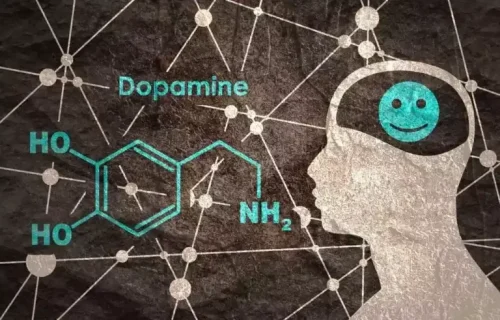
We would also like to thank Editage () for English language editing. As mentioned previously, complications range in quality and severity. Sequelae include perturbations to affect regulation and cognition, as well as to physical appearance manifested via pathognomonic anomalies. Generally, the more alcohol a person consumes during pregnancy, the higher the chance of FAS.
How to Tell if a Child Has FAS
- FASD is caused by prenatal alcohol exposure, which is the leading preventable cause of congenital conditions in the United States.
- Alcohol consumption could harm the developing fetus at any time during pregnancy — especially early on in the development process.
- You can share your concerns and ask for a referral to a doctor who specializes in FASDs for further support.
- Because brain growth takes place throughout pregnancy, stopping alcohol use will improve the baby’s health and well-being.
- While we realize this term may not match your gender experience, it’s the term used by the researchers whose data was cited.
The brain is still developing then, and even moderate amounts of alcohol can disturb this process. If you did drink any amount of alcohol during pregnancy, it’s important to know that your healthcare provider and your baby’s pediatrician need to know to help you plan for your child’s future. If you think there could be a problem, ask your healthcare provider for a referral to a specialist (someone who knows about FASDs). Specialists could be a developmental pediatrician, child psychologist, or clinical geneticist. In some cities, there are clinics whose staff members have special training in diagnosing and treating children with FASDs. To find healthcare providers and clinics in your area, contact FASD United’s (formerly NOFAS) Family Navigator program which provides individuals living with FASDs and their family members and caregivers with expert, confidential support and referrals.

What’s the outlook for children with FASDs?

If a baby has exposure to alcohol in the womb, they can develop a range of Drug rehabilitation conditions known as fetal alcohol spectrum disorders (FASDs). The most severe of these disorders is fetal alcohol syndrome (FAS). Binge drinking or heavy drinking throughout pregnancy might increase the risk of fetal alcohol syndrome. However, drinking any amount of alcohol during pregnancy can potentially increase the risk of developmental delays and birth defects.
Reducing risk
Physical symptoms such as growth impairment remain unchanged during adulthood, with persistent shorter stature. This research did not receive any specific grant from funding agencies in the public, commercial, or not-for-profit sectors. The prevalence of cardiovascular manifestations was postulated from cardiosympathetic hyperactivity between arterial baroreceptors, cardiac parasympathetic fibers, and preganglionic sympathetic vasomotor fibers. The protective mechanism of premorbid hypertension could be attributed to the prior intake of antihypertensive medications, which mitigate cardiosympathetic fluctuations, while the protective effect of alcoholism needs to be further studied. Of the 28 patients with BSP, 24 (85.71%) had isolated BSP, and 4 (14.29%) had combined BSP-oromandibular dystonia.

Alcohol use at any time during pregnancy may lead to issues with growth or the central nervous system. You may be familiar with a condition called fetal alcohol syndrome (FAS). This syndrome is part of a broader group of conditions called fetal alcohol spectrum disorders (FASDs), which can be caused by alcohol use during pregnancy. FASDs can occur when a developing baby is exposed to alcohol before birth. This can happen even prior to a person recognizing that they are pregnant.
About Fetal Alcohol Spectrum Disorders (FASDs)
The beginning of fetal development is the most important for the whole body, but organs like the brain continue to develop throughout pregnancy. It’s impossible to exactly pinpoint all of the development during pregnancy, making it risky to drink alcohol at any time prior to birth. If you are having unprotected sex and not using birth control, you must abstain from alcohol. The U.S. surgeon general also recommends abstaining from alcohol if you’re trying to conceive. If you’re currently pregnant, it’s drunken baby syndrome never too late to stop drinking—reach out to a healthcare provider if you need help quitting alcohol. To prevent fetal alcohol syndrome, don’t drink alcohol during pregnancy.

Fetal Alcohol Syndrome: Signs and Symptoms
Other fetal alcohol spectrum disorders share some symptoms with fetal alcohol syndrome. All FASD diagnoses require evidence of fetal alcohol exposure in the womb. About 1 in every 1,000 babies born in the United States is diagnosed with fetal alcohol syndrome.
Living with fetal alcohol spectrum disorders

Fetal alcohol syndrome is on the severe end of fetal alcohol spectrum disorders (FASD). FASD is a range of conditions in the child caused by the mother drinking alcohol during pregnancy. Fetal alcohol spectrum disorders are caused by a baby’s exposure to alcohol during pregnancy. The resulting conditions may cause physical, developmental, or a mix of both physical and developmental disabilities ranging in severity from mild to severe. Children were given a preliminary diagnosis solely on the basis of key facial features (PFL ≤10th centile, a smooth philtrum, a thin vermilion border, microcephaly (OFC ≤ 10th centile) and growth deficiency (height and/or weight ≤10th centile).
The baby doesn’t metabolize (break down) alcohol in the same way an adult does – it stays in the body for a longer period of time. There is no known safe amount of alcohol during pregnancy or when trying to get pregnant. Alcohol can cause problems for a developing baby throughout pregnancy, including before a woman knows she’s pregnant. All types of alcohol are equally harmful, including all wines and beer. A total of 162 patient records with a consideration of GBS were identified, of which, only 81 satisfied the inclusion criteria but 10 had missing records, hence only 71 GBS patients were included in the study (Fig. 1).
Behavior and Education Therapy Programs
Because early diagnosis may help lessen the risk of some challenges for children with fetal alcohol syndrome, let your child’s healthcare professional know if you drank alcohol while you were pregnant. A better understanding of the prevalence of these additional structural defects will be important in documenting the full spectrum of physical features that constitute FAS. The alcohol crosses the placenta and enters the baby’s blood where it can damage the developing brain and other organs leading to an FASD. FASDs are 100% preventable if a woman does not drink alcohol during pregnancy. In general, the diagnostic team includes a pediatrician and/or physician who may have expertise in fetal alcohol spectrum disorders, an occupational therapist, a speech-language pathologist, and a psychologist. Reach out to a healthcare provider if you think a child within your care might have fetal alcohol syndrome.
